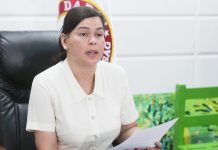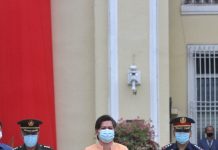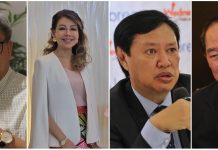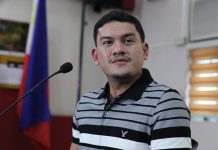Around 5,000 Muslims, Christians and Lumads have banded together to give top priority to the protection of the environment in advancing the peace process in Mindanao.
In a community survey conducted by Konsult Mindanaw, a project commissioned by the Bishops-Ulama Conference (BUC), respondents from Northern Mindanao expressed a clear concern for the environment.
Under the security category of the question, “What is your vision of peace,” protection of the environment yielded the highest rate.
Other priorities included ‘freedom from fear’ and ‘a drug-free society.’
Dubbed Community-Based Consultations and Dialogue, the survey involved more than 300 focus group discussions (FGDs) conducted across the island in various Muslim, Christian and Lumad communities.
It was conducted to determine the people’s sentiments, aspirations and recommendations re the ongoing peace process between the government and the Moro Islamic Liberation Front (MILF).
According to the findings, the respondents’ main concern is to prevent illegal logging that has been tagged as one of the major causes of flooding in Northern Mindanao.
Illegal logging operations have been rampant in Mindanao, particularly in the CARAGA region and the Autonomous Region in Muslim Mindanao (ARMM), which have been considered as environmental “hot spots” by the Department of Environment and Natural Resources (DENR).
The growing concern for the environment, especially the adverse impact of climate change, has been felt above all in developing countries that have armed conflicts like the Philippines.
In a recent forum on “Climate Change, Peace and Conflict”, the Office of the Presidential Adviser on the Peace Process (OPAPP) has called for a concerted action to lessen harmful impact brought about by climate change to the country’s peace and development, particularly in the wake of two powerful typhoons, “Ondoy” and “Pepeng,” that hit the country in September and October.
The typhoons left massive damage to property and lives in Luzon, including Metro Manila.
Outgoing Presidential Adviser on the Peace Process Nabil A. Tan said “climate change may be viewed as a determining variable for peace and conflict as it requires a focused intervention to anticipate, minimize, and counteract the negative impact which cannot be underestimated.”
Tan stressed that the harmful impact of climate change has been felt and may have a domino effect of an endless list of problems and issues, and may be used as a reason for conflict.
Communities that are affected by armed conflict are particularly vulnerable as the effects of climate change aggravate the dire circumstances they are in.
However, Tan said this crisis can also be an opportunity for ways towards peace.
He stated it can also be considered “as a springboard for social transformation and an opportunity to bring forth a collective action in the face of a crisis.”
0 Comments
Oldest






